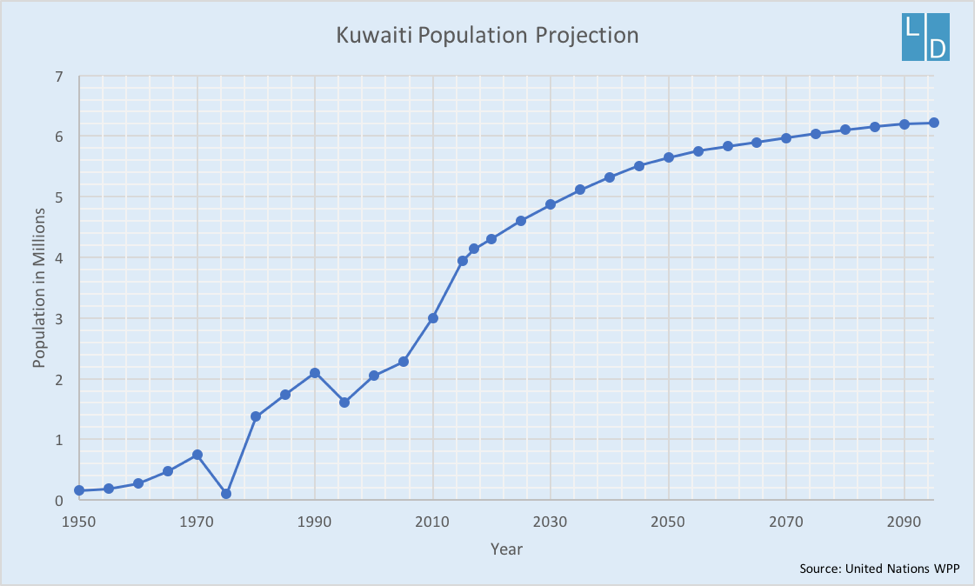Democratic Characteristics Without Democracy: Kuwait's Social Risk
Primary Analyst: Ryan McCabe
Team Leader: Duncan Spilsbury
Executive Summary
Kuwait society is unique because it has elements of a democracy that would theoretically afford rights to its citizens, yet the executive branch routinely disregards civil rights and progress. With over 100,000 stateless, unemployed, and desperate individuals with no feasible way of escaping their destitute conditions, Kuwait can be doing a lot more to address its human rights concerns. The lack of progress of Kuwaiti rights is a significant factor underlying foreign investors’ trepidation and prevents Kuwait’s economy from diversifying.
Social and Human Rights
Kuwait’s government has democratic characteristics that are rare in the Middle East. However, despite the efforts of freely elected officials who comprise the Legislative Assembly, little progress has been made to address numerous human rights concerns that continue to hold implications on foreign investment in the Oil and Energy sector and Kuwait’s economy.

Technically, Kuwait is the most democratic country in the Gulf. The citizenry has the ability to elect MPs that in theory hold the executive branch accountable. But in reality, Kuwait’s executive branch routinely tramples on the rights of its citizens. When the elected MPs investigate government corruption, the emir has a tendency to simply dissolve parliament and call a reelection. In 2014, when the reelection elected more opposition MPs in the house, the emir deemed the election invalid and reinstated the previous parliament. It is clear that the Kuwaiti government has a pseudo-democratic structure, but not in execution.
For the citizenry, too, the country is far from a liberal democracy. Political dissent has been deemed not just illegal, but treasonous. In recent years, the executive branch has consistently clamped down on political dissidents. Reporters or politicians thought to have criticized the government have been imprisoned; convicted critics lose their ability to run for office; and vocal opponents have their Kuwaiti citizenships revoked. Revoking Kuwaiti nationality prohibits dissidents from access to healthcare, education, and employment in the country. When their citizenship is revoked, they are unable to appeal, as the judiciary has deemed that it has no jurisdiction over matters relating to nationality.
Further, the government’s treatment of minorities is particularly troubling. 100,000 strong, the “Bidoun” are stateless individuals in Kuwait who, for various reasons, do not have citizenship. To survive, they make up a large portion of the black-market industry. The Bidoun pose an interesting human rights dilemma for the government. They are prohibited from leaving the country, but are also prohibited from legal employment, education, and healthcare in Kuwait, while being the target of social ostracization. The United Nations, numerous human rights agencies and NGOs have continually criticized Kuwait about the poor living conditions and human rights abuses the Bidoun are subjected to. Living in tin-huts outside of Kuwait-city, in destitute conditions that are surprising for a country with one of the highest GDP per capitas in the world, many are turning to terrorist organizations for shelter and purpose. In 2005, three Bidoun people were involved with Al-Qaeda in a shootout with Kuwaiti police.
Additionally, there is rampant gender inequality in Kuwait. Women are unable to divorce their husbands unless they go through a tedious court process, when men can divorce their wives unilaterally. Domestic violence and marital rape are not recognized in Kuwaiti law. Women who marry non-Kuwaiti men are not allowed to pass on their citizenship to their children, when men who marry non-Kuwaiti’s can.
Risk Mitigation
The acrimonious relationship between the legislative assembly and the executive branch of the government has dissuaded foreign investors and stunted the execution of economic reform intended to diversify the economy.
Given the current government structure in Kuwait, there is little that can be done in terms of risk mitigation, especially around the Oil and Energy sector. The sector continues to be the backbone of Kuwait’s relatively prosperous economy, and given the struggle to enact economic reform that would diversify the economy, it is unlikely to change. All that citizens and investors can realistically hope to do is continue to elect MPs who endeavour to hold the executive accountable for its frequent human rights abuses inflicted against the Bidoun and political dissidents. But even then, given the emir’s propensity to dissolve opposing parliaments, no progress is guaranteed.
Because of the severe penalty for political opposition, oil and energy companies risk losing their work force if employees decide to vocalize their distaste. Mitigation of this risk can include the implementation of specific contracts towards their employees’, stressing the risks of future unemployment if political opinion is vocalized. While this appears to advocate censorship, efficient workforce production is paramount in maintaining success. A more reserved option could include lobbying the government for a lesser penalty if a member of the company’s citizenship is revoked.

